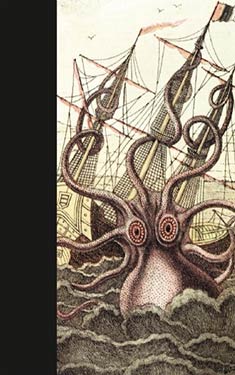
Added By: gallyangel
Last Updated: gallyangel
Medusa: A Story of Mystery and Ecstasy and Strange Horror
| Author: | E. H. Visiak |
| Publisher: |
Centipede Press, 2011 Gollancz, 1929 |
| Series: | |
|
This book does not appear to be part of a series. If this is incorrect, and you know the name of the series to which it belongs, please let us know. |
|
| Book Type: | Novel |
| Genre: | Horror |
| Sub-Genre Tags: | |
| Awards: | |
| Lists: | |
| Links: |
|
| Avg Member Rating: |
|
|
|
|
Synopsis
This "Story of Mystery and Ecstasy and Strange Horror" is a fascinating and altogether unique account of sea-bound terror. E. H. Visiak was a close friend of the brilliant David Lindsay, as well as a renowned authority on the works of John Milton and Joseph Conrad. All three influences are evident in MEDUSA, with Lindsay's peculiar brand of metaphysical horror colliding with a very Miltonian sense of poetic religiosity, all set against a gritty portrayal of life at sea that directly recalls Conrad. A fourth influence would seem to be H.P. Lovecraft, although this novel is a far cry from the pulpy WEIRD TALES style.
Visiak's lofty intentions are evident in the highly refined Milton-esque prose, which is anything but an easy read. There's also the fact that very little happens in the novel's first half, involving a young boy who joins a ship manned by Huxtable, a middle-aged mariner in search of his missing son. The ensuing sea jaunt is none too eventful, although things pick up around the halfway point, with the discovery of a pirate ship containing a single inhabitant: a babbling madman.
A bit later a strange fish-like creature is discovered being harbored by one of the seamen. Turns out the creature is part of an ancient race of super-intelligent humans who created a transmitting machine that transformed them into scaly creatures and caused their land to sink into the sea (all this is related in the form of an "Indian legend" fortuitously recounted by Huxtable). Now it seems the critters subside by luring unsuspecting seamen to their lair, where a vast tentacled entity assails the men with ecstatic visions, thus making it easier for them to be devoured by the "medusa" (which Colon Wilson opines represents the destructive power of sexuality and, by extension, femininity). Such a fate does indeed befall Huxtable's crew, and only those of high spiritual constitution survive the melee.
Such is MEDUSA.
Excerpt
No excerpt currently exists for this novel.
Reviews
There are currently no reviews for this novel. Be the first to submit one! You must be logged in to submit a review in the BookTrackr section above.
Images
No alternate cover images currently exist for this novel.



















 Full Details
Full Details





